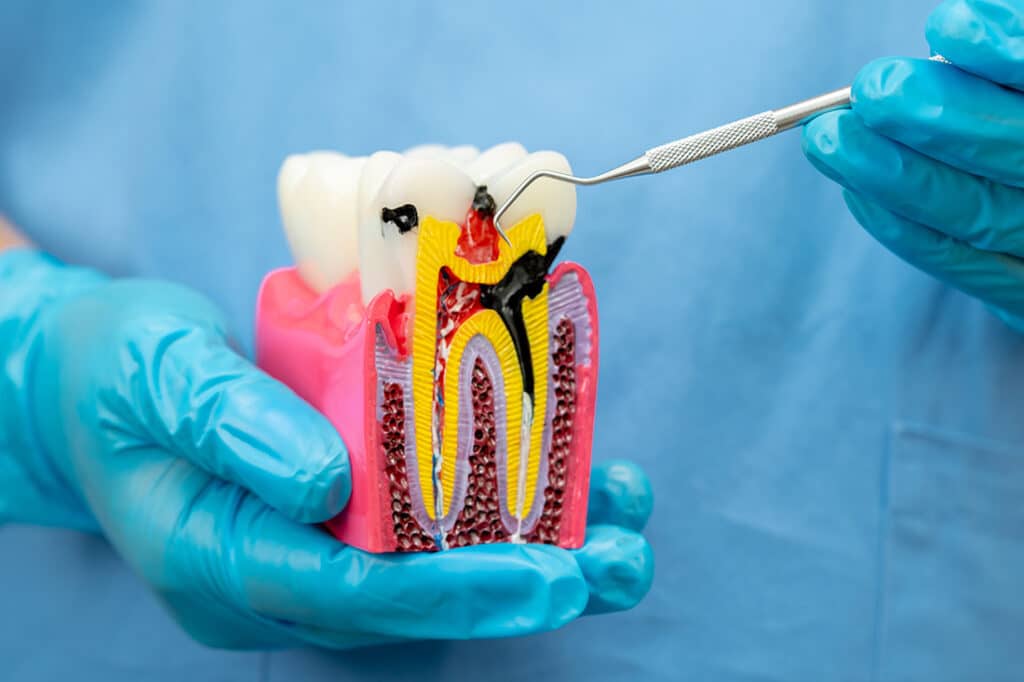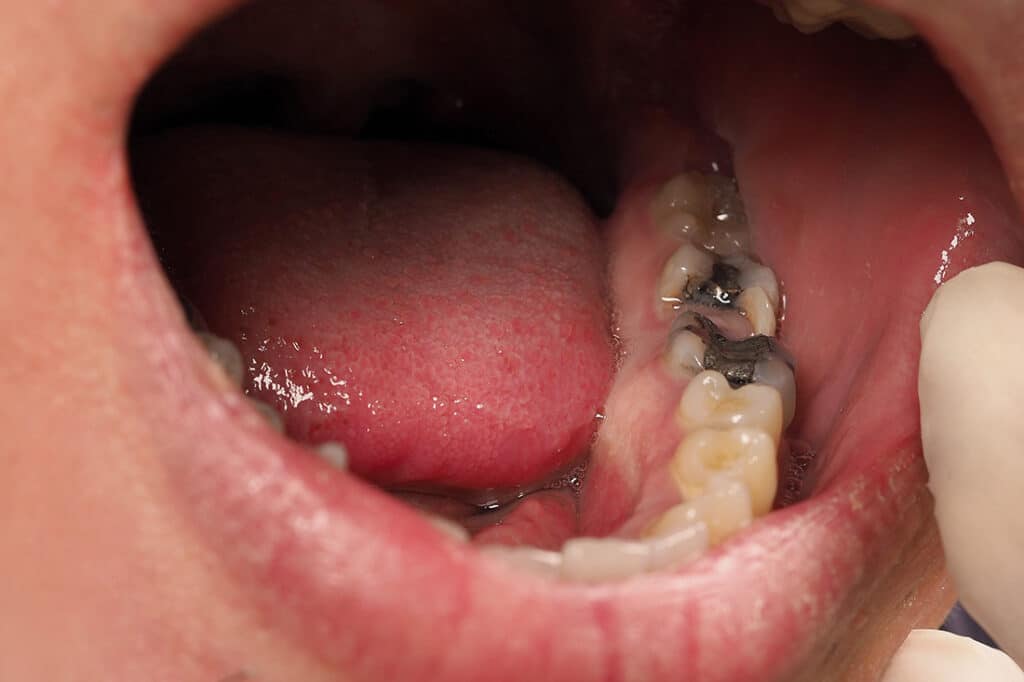Root Canal in Nashua, NH
Endodontics (root canal treatment) is a dental technique that treats infection in a tooth’s pulp. Root canal therapy is painless and can save a tooth that would otherwise have to be extracted. Root canals are perhaps the most well-known dental procedure and the most prevalent endodontic procedure. When a tooth becomes infected, the nerves in the root are usually the source of infection. It is necessary to remove the infected nerves. Root canal therapy is the name for this procedure. We perform most types of root canal procedures in our dental office in Nashua. Some complex cases will require us to refer you to a local endodontist.
If you’re having trouble with your teeth and you’re experiencing pain, book an appointment today, and our dentists will let you know if you need root canal therapy.
Why is root canal needed?
The infection in the root canal of a tooth is caused by bacteria that dwell in the mouth and infiltrate the tooth.
This may occur after:
- Leaky fillings
- Tooth decay
- Tooth damage as a result of trauma, such as a fall, for example
You may not notice any symptoms connected with a root canal problem in many cases, but if you notice any of the signs listed below, you should call your dentist:
- Sudden intolerance to hot or cold meals
- A dull aching or pain in the jaw or tooth
- Gum pain, soreness, or swelling on a regular basis
- A sharp pain when chewing or biting into foods
What should I expect during root canal treatment?
A local anesthetic is used to numb the area around the tooth before beginning treatment. After that, the dentist will drill a hole into the tooth to access the canal. They will then be able to clean the canal and remove diseased tissue. The gap is sealed with a sealant called gutta-percha once the infection has been removed. A crown is generally recommended for a tooth that has undergone a root canal procedure. This will improve the tooth’s look while also increasing the likelihood of a successful root canal.
We can accomplish most root canal therapy in just one appointment. Our dentists can design, produce, and insert a porcelain dental crown on the same visit as your root canal treatment, thanks to our in-office CEREC technology. This means you’ll have to make fewer visits, which will save you both time and money. In most situations, local anesthetics and proper pain medication allow the surgery to be completed with little to no pain. You may experience some discomfort following the procedure, although this is common with most dental surgeries. After that, over-the-counter pain relievers are usually sufficient, although your dentist may prescribe stronger medicine.
Root Canal in Nashua FAQs
If you have any concerns about your teeth, you should schedule an appointment right away. If you put off an essential dental procedure, your teeth may suffer further damage. Our dentists in Nashua can help you figure out which treatment option is ideal for you. You are welcome to contact us with any queries or requests for information about our services.
For more information on Root Canal Therapy in Nashua, NH call (603) 883-6010 today!



